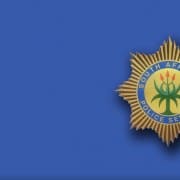|
Getting your Trinity Audio player ready...
|
Corruption Watch and the Institute for Security Studies (ISS) will ask Parliament today to support stricter criteria for recruitment of the South African Police Service (SAPS) national commissioner and head of the Hawks, two of the most important functions in a country with rising crime, violence and corruption.
The country’s top cop is currently selected by the president through a secret process, and is only required to be a South African of more than 18 years old with no criminal record. Entry-level constables have stricter appointment criteria.
In their submission to Parliament’s police portfolio committee, Corruption Watch and the ISS further detail the serial crises of top management in the SAPS and the Directorate for Priority Crime Investigations (the Hawks) that is referred to in the National Development Plan (NDP) of 2012.
The public can make submissions to the ISS and Corruption Watch campaign through an online survey.
Poor police leadership costs lives, undermines public safety and allows corruption to flourish. South Africans have a responsibility to improve the selection criteria for the highest-ranking cop in the country, and South Africa’s main corruption fighter.
Lack of experience, expertise and integrity in SAPS and Hawks leadership have seriously eroded the capacity of these two criminal justice institutions to fulfil the critical role of combating crime and corruption. The consequences of this poor leadership are reflected in the increase in crime, specifically armed robberies and murders since 2011/2012.
The police service is hierarchical. How the leadership behaves sets the tone for all police ranks, say the ISS and Corruption Watch. Despite a significant increase in the SAPS budget over the past five years, there is hard evidence that various functions of the SAPS have deteriorated, including crime intelligence, detective services and visible policing.
The current lack of criteria for appointment of the SAPS commissioner is a matter of great concern for safety, security and justice in South Africa, say the ISS and Corruption Watch.
The police have been scandalised and disgraced by poor leadership for many years, with crises ranging from the Marikana massacre to inaction following allegations of grand corruption made against the Gupta brothers and the Zuma family. This undermines the dedication and hard work of the many honest and committed men and women who serve in the SAPS and Hawks.
The ISS and Corruption Watch propose that government commit to recommendations in the NDP relating to the appointment of the SAPS national commissioner and head of the Hawks.
They call for a transparent and public participatory appointment process to ensure only the best candidates are appointed to these critical positions.
There is an urgent need to ensure the next national police commissioner is qualified, honest, experienced and accountable. Both the SAPS and the Hawks are under temporary leadership and South Africans are in the dark regarding the process and timeline for appointing permanent leaders to these powerful institutions. This goes directly against the Constitution which calls for a transparent and accountable police service.
In their submission, Corruption Watch and the ISS emphasise the role that Parliament can play in the appointment processes. The executive branch of government adopted the NDP, and Parliament has a responsibility to hold the executive accountable for implementing the policies that it promised South Africans it would implement.
The ISS and Corruption Watch welcome the Parliamentary Portfolio Committee on Police holding a specific meeting aimed at obtaining feedback from the SAPS and the Civilian Secretariat of Police on what has been done to implement the recommendations contained in the NDP.
The minister of police has a responsibility to establish a National Policing Board to develop the necessary selection criteria and requirements for employment for the national commissioner.
The NDP urges the president to establish a selection panel to drive a merit-based and transparent recruitment process to develop a short-list of experienced individuals of integrity who possess the capability of leading the SAPS. This is particularly important because when police leadership make mistakes people can get killed or seriously injured. We need not look further than the events of Marikana where police needlessly shot 112 striking mineworkers, killing 34 people, to realise why we need proper police leadership. Corruption Watch and the ISS suggest that the Parliamentary Portfolio Committee on Police could support such a panel by facilitating public participation in the process, as was achieved with the appointment of the public protector.
These recommendations do not remove the president’s prerogative to make the final appointment of the national commissioner. The recruitment panel could provide the president with a list of between three and five suitably qualified and experienced women or men who had been properly vetted and would do a good job at running the police. A president that cared about improving policing and public safety would have no problem in implementing the NDP recommendations as a matter of urgency. Similarly, a minister of police who wanted the best leadership for the Hawks would ensure a similar recruitment process.
The recommendations in the Corruption Watch and ISS submission identify several activities that would enhance transparency and public participation. These include the establishment of a panel of experts to develop key selection criteria for the posts, public advertising of the positions, enabling public engagement around the shortlisted candidates, and an open interview process.
In July 2017, Corruption Watch and the ISS launched a public awareness campaign focusing on these critical appointments. They have also recently issued an online survey to give the public the opportunity to have say in the characteristics, experience and skills that we expect in our top cops.
The survey can be accessed at https://issafrica.org/crimehub/analysis/survey. After 30 September the results will be made public and sent to the president, the minister of police and the Portfolio Committee on Police.
For more information contact:
Anzet du Plessis anzet@proofafrica.co.za 083 557 2322
Phemelo Khaas phemelok@corruptionwatch.org.za 083 763 3472








